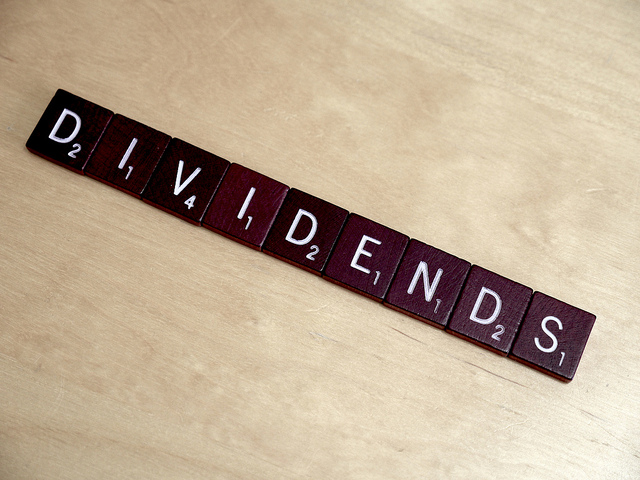
This is just a “what if” piece. If one of my readers knows better than me, leave a comment, or email me. Thanks.
The Surprise Dividend
Imagine one day in 2019 that your favorite dividend-paying stock made the following announcement:
Dear Shareholder,
As you may know, we currently pay a dividend of $2/year to holders of our common stock for each share they hold. ?In this current climate where there is uncertainty over whether dividends will be cut at some companies, we would like to guarantee the current payout, and give you more.
We are replacing the current dividend and declaring a special payout?today — an unsecured perpetual junior subordinated bond that will pay 80?cents quarterly per current share, payable to all current shareholders as of June 1st, 2019. ?It will be eligible to trade separately under the ticker [TICKER]. ?You are free to sell this income stream for a current gain, or you can continue to receive this income in perpetuity, as will any future holder of this bond.
Why are we doing this? ?The Total Revenue And Safe Harbor Act of 2018 repealed special treatment of dividends, but interest is still tax-deductible to us as a corporation. ?Much as we like the flexibility of dividends, our cash flow is more than sufficient, and can handle a higher payout. ?This higher payout?is possible partially because this is an interest payment, and we get to deduct the payment from taxable income. ?With our current corporate tax rate of 35%, the effective cost of the new dividend to the corporation is $2.08 per current share.
Many of our shareholders are not taxable, or have taxes deferred. ?Still others are retirees who are in lower personal tax brackets. ?We expect that some current shareholders in higher tax brackets will choose to sell their bonds. ?We would not be surprised to find life insurance companies as willing buyers, given our high credit rating, and their need for long bonds as investments.
Though in the near-term, we will not pay a dividend, that does not mean we will never pay a dividend again. ?We will review our payout?policy regularly, and make changes as we see best. ?It is also possible that future shareholders could see further issuance of these securities if?our reliable excess cash flow grows.
As always, we welcome your inquiries to our Investor Relations Department. ?Please be aware that this does not constitute tax advice, nor will we provide that to you. ?Please give your tax questions to your own personal tax adviser.
Many thanks for being one of our shareholders. ?We hope you prosper in 2019 and beyond.
I left aside the argument that now shareholders could choose their own income preference, and also that the income from a junior subordinated bond could survive bankruptcy (though unlikely), and could control the company post-bankruptcy (also unlikely). ?Mentions of bankruptcy don’t travel well, even in vague terms.
I also did not mention that the package of the junior bond and the post-dividend stock would likely trade at a higher price post-event. ?Might some activist investors try some more severe proposals of?this sort?
Your thoughts on this proposal are welcome. ?I can’t think of any firm that has done something like this in the past. ?Might they do it in the future?

You should look at the Greenlight iPrefs slide presentation from early 2013 wherein Einhorn proposed Apple issue to existing shareholders and list on the exchange a perpetual preferred stock. That went nowhere.
The folks at Constellation Software actually managed to issue a subordinated debenture to their shareholders so you should look that up also.
-Ben
Not quite the same, but crazy Eddie Lampert launched a bond rights offering at Sears.
On the purely hypothetical front, two immediate problems (not insurmountable) that come to mind when putting on my banker hat and pitching this to a executive team: for “dividend” stocks there is a healthy (and vocal) constituency that loves the tax treatment of qualified dividends and loves company-sponsored DRIP schemes. Obviously you could try to point to after-tax income (just increase the interest payments!) but reinvestment would get a bit messier.
On the practical front, perhaps a more serious problem presents itself: exchange-traded low par bonds (“baby bonds”) do already exist for retail investors but have never been that popular or liquid, despite generally being a pretty good deal (check out the AMG 5.25s or the VZ 5.90s). Here you’d have to educate to correct investor ignorance/aversion to this type of product.